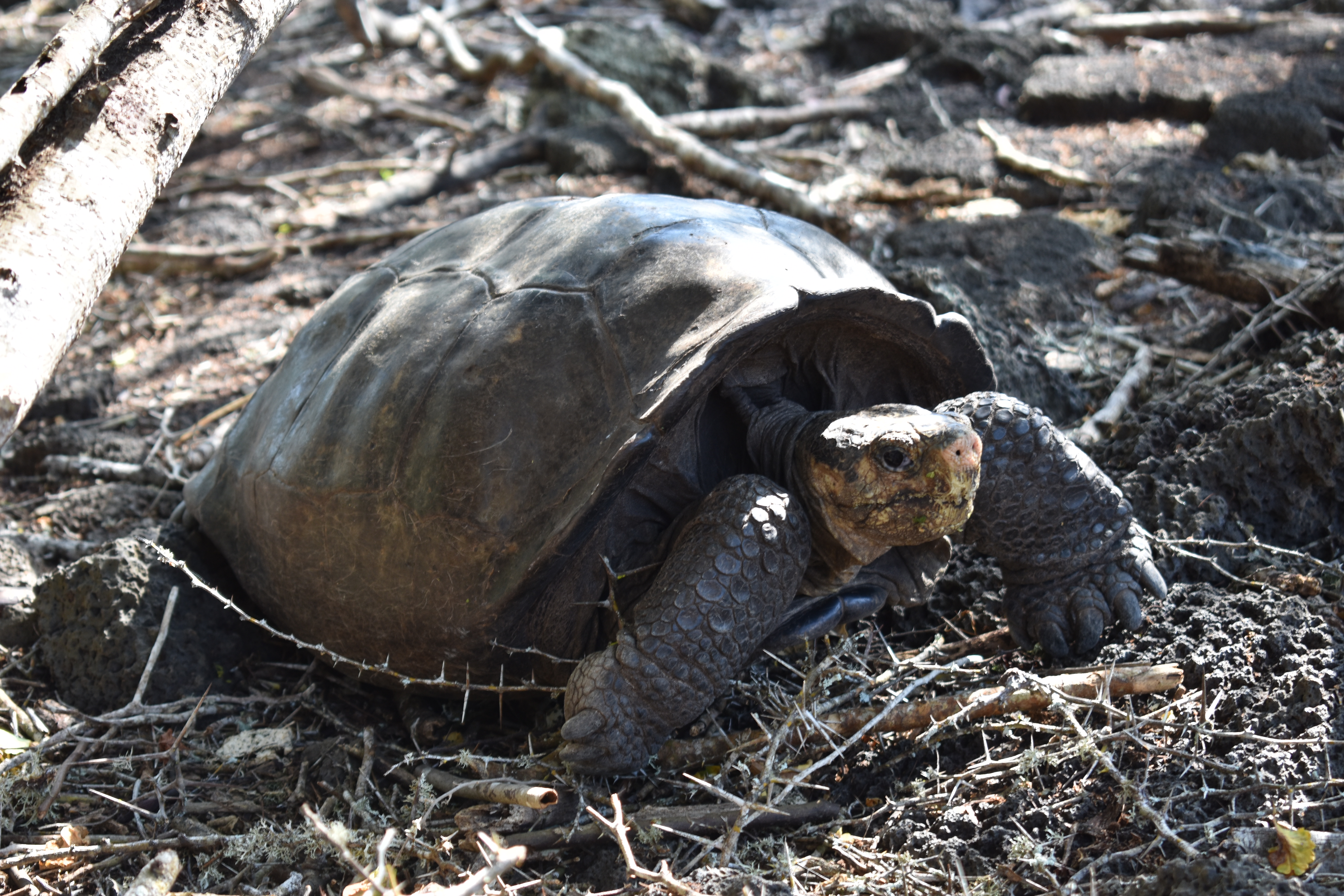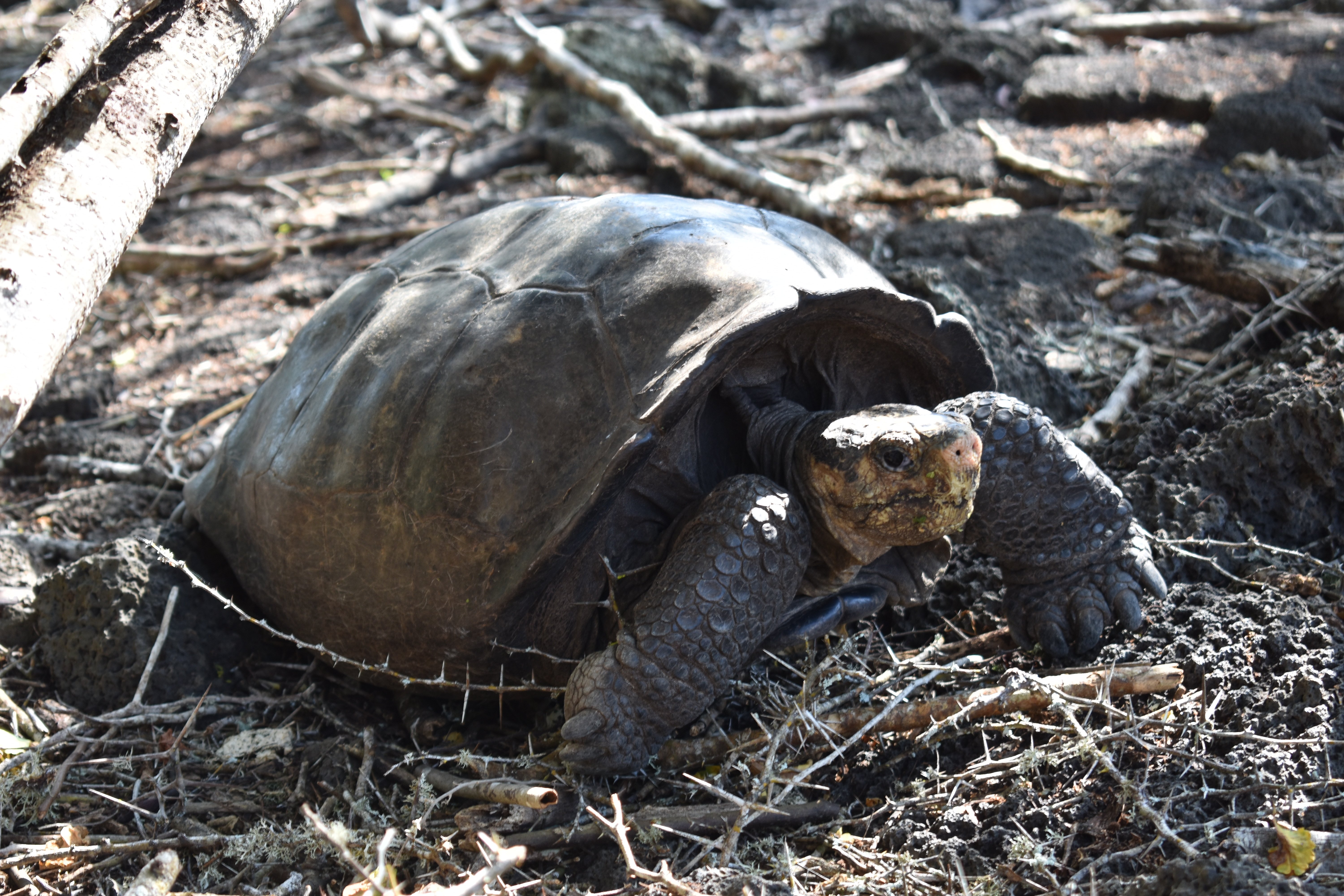Saving the Galapagos ‘Fantastic Giant Tortoise’ from extinction
14 June 2022 | By: Newcastle University | 2 min read
Exciting new genetic research has revealed that the Galapagos giant tortoise Chelonoidis phantasticus is not extinct.
Back from the dead
After a female tortoise was found living on Fernandina Island in 2019, an international research team sequenced the genome and compared it to that of the only known specimen of the Fernandina Island Galapagos ‘Fantastic Giant Tortoise’ found in 1906.
Their study confirmed that the tortoise found alive is from a species thought to be extinct more than a century ago.
A remarkable find
Publishing their findings in the journal Communications Biology, the scientists compared the genomes of the two tortoises with that of all living species of Galapagos giant tortoises, revealing that the two known Fernandina tortoises are from the same Chelonoidis phantasticus lineage and are distinct from all others.
The study was led by researchers from the universities of Newcastle, UK, and Princeton and Yale, in the USA.
Study lead author, Dr Evelyn Jensen, Lecturer in Molecular Ecology at Newcastle University’s School of Natural and Environmental Sciences, said:
“Only two tortoises have ever been found on Fernandina Island, and here we have shown that they are indeed members of the same species, and different from the other Galapagos tortoises. It is a truly exciting discovery that the species is not in fact extinct, but lives on.”

Home: the largest pristine island on earth
Whether there are any remaining tortoises living on Fernandina Island has fascinated biologists for over a century.
Located on the western periphery of the Galapagos Archipelago, Fernandina Island is an active volcano and is reputed to be the largest pristine island on Earth. The male specimen used in the study was collected by the explorer Rollo Beck during an expedition by the California Academy of Sciences in 1906.
In 2019, the female tortoise nicknamed “Fernanda” was found in an isolated patch of vegetation, cut off from the main vegetated area on the southeast of the island by several lava flows. Scientists estimate that she is likely well over 50 years old, but her growth is stunted. Fernanda is currently in captivity in the Galapagos National Park Tortoise Center.
Hope for species recovery
Recently, signs of at least 2–3 other tortoises were found during other expeditions on the island, bringing hope for the recovery of the species. Dr Jensen added:
“What comes next for the species depends on whether any other living individuals can be found. If there are more Fernandina tortoises, then a breeding program could start to bolster the population. We hope that Fernanda is not the ‘endling’ of her species.”
For now, Fernanda is in a similar position to the famed Lonesome George, who captured hearts and headlines around the world as the last surviving individual of the Pinta Island Galapagos giant tortoise. Lonesome George lived out his final decades of life in captivity but never bred, and when he died of old age in 2012, his species became extinct.
The search begins
More expeditions are planned to search the inaccessible areas of Fernandina Island for more Chelonoidis phantasticus tortoises.
So far, the island has remained largely unexplored due to extensive lava fields barring access to much of the island’s interior, resulting in little exploration beyond the island’s coastline.
While Dr Jensen and colleagues await news of whether there are more surviving tortoises, they will continue their work to understand how the Fernandina species fits into the evolutionary history of the Galapagos giant tortoises.
You might also like...
- Press release: Fernandina Island Galapagos giant tortoise is not extinct
- Find out more about Dr Evelyn Jensen, Lecturer in Molecular Ecology
- Explore our School of Natural and Environmental Sciences
Explore our blog to discover the things we're doing to safeguard our home, planet Earth.
Alternatively, subscribe to our research newsletter to receive the very latest research findings and cutting-edge insights direct to your inbox. Sign up now.
Reference: Evelyn L. Jensen, Stephen J. Gaughran, Nicole A. Fusco, Nikos Poulakakis, Washington Tapia, Christian Sevilla, Jeffreys Málaga, Carol Mariani, James P. Gibbs & Adalgisa Caccone (2022). The Galapagos giant tortoise Chelonoidis phantasticus is not extinct. Communications Biology. https://doi.org/10.1038/s42003-022-03483-w
Photo credit: Lucas Bustamante © Galapagos Conservancy
